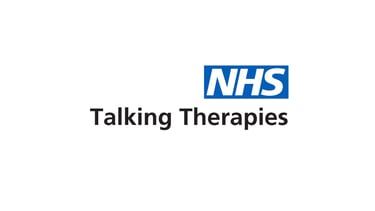Debunking Common Myths About Therapy
Breaking Down Barriers to Mental Health Support


Debunking Common Myths About Therapy: Breaking Down Barriers to Mental Health Support
Despite growing awareness around mental health, many misconceptions about therapy still exist. These myths can prevent people from seeking the support they need, leaving them to struggle alone. The truth is, therapy is for everyone—not just for those in crisis. If you’ve ever hesitated about seeing a therapist due to common misunderstandings, let’s break down some of the biggest myths and uncover the reality of therapy.
Myth 1: Therapy is Only for People with Serious Mental Health Problems
Reality: Therapy is for anyone who wants to improve their mental wellbeing, navigate life’s challenges, or better understand themselves. While therapy is beneficial for conditions like anxiety, depression, and trauma, it also helps with stress management, personal growth, relationships, and self-confidence. You don’t have to be in crisis to benefit from speaking to a therapist.
Myth 2: Talking to Friends and Family is Just as Effective
Reality: While support from loved ones is invaluable, a therapist provides professional, unbiased guidance tailored to your specific needs. Therapy offers a structured space for deep self-exploration, evidence-based coping strategies, and long-term change that goes beyond casual conversations with friends or family.
Myth 3: Therapy is Just Talking About Your Feelings
Reality: Therapy is much more than venting. It’s a collaborative process where therapists use psychological techniques to help you develop new perspectives, identify patterns, and build practical coping strategies. Depending on your needs, therapy might involve cognitive behavioural techniques, mindfulness practices, trauma-informed approaches, or solution-focused strategies.
Myth 4: Therapy is Only for People Who Can’t Handle Their Problems Alone
Reality: Seeking therapy isn’t a sign of weakness—it’s a sign of self-awareness and strength. Even the most resilient people can benefit from a supportive, non-judgemental space to process emotions, reflect on experiences, and gain new insights. Therapy is an investment in personal growth and emotional wellbeing.
Myth 5: Therapy is Expensive and Not Worth the Cost
Reality: While therapy is an investment, many options exist, including NHS services, low-cost counselling, and sliding scale fees based on income. Many people find therapy invaluable for improving their quality of life, relationships, and overall wellbeing. When considering the cost, think of therapy as an investment in yourself and your future.
Myth 6: Therapy Takes Years to See Results
Reality: While therapy can be a long-term journey for some, many people experience positive changes in a relatively short time. Some forms of therapy, like Cognitive Behavioural Therapy (CBT), are structured for short-term, goal-focused progress. The length of therapy depends on your individual needs and goals.
Myth 7: Therapists Just Sit There and Listen Without Offering Solutions
Reality: A good therapist actively engages with you, asks thought-provoking questions, and helps you develop strategies for change. Therapy is a dynamic process where you gain tools, insights, and techniques to navigate life’s challenges more effectively.
Myth 8: Therapy Means Dwelling on the Past
Reality: While understanding past experiences can be helpful, therapy isn’t just about looking backwards. Many approaches focus on the present and future, helping you create positive change and build resilience for what lies ahead. Therapy is about growth, not just reflection.
Myth 9: Once You Start Therapy, You Have to Go Forever
Reality: Therapy is a flexible process, and you’re in control of how long you engage in it. Some people benefit from a few sessions, while others prefer ongoing support. Your therapist will work with you to determine the right approach for your needs.
Myth 10: If Therapy Didn’t Work for Someone Else, It Won’t Work for Me
Reality: Therapy is a highly personal experience, and what works for one person may not work for another. Finding the right therapist and approach is key. If you’ve had a negative experience in the past, it doesn’t mean therapy isn’t for you—it just means you might need a different therapist or therapeutic style.
Misinformation about therapy can stop people from seeking the support they deserve - lets break down barriers to therapy






